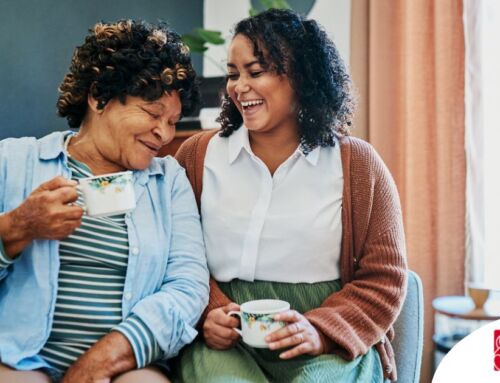When you’re caring for a patient, family member or loved one who has been diagnosed with Alzheimer’s, you understand there are daily challenges in their care. Because the disease is a progressive one, your responsibilities will increase with time. Alzheimer’s can cause Dementia, which brings its own challenges to daily life.
What is the Difference Between Alzheimer’s and Dementia? (Click for more info)
Some of the earlier symptoms of Alzheimer’s are memory loss, disorientation, confusion and mood changes or behavioral changes. Once there has been an official diagnosis and care plan put in place, the primary caregiver will need all the organizational help possible.
Top Tips for Caring for an Alzheimer’s Patient
Have an Organized Routine. Having a daily routine will help to reassure the patient in it’s predictability. Try to keep appointments and errands or tasks at the same time of day of the same day of the week, when possible. Having a small whiteboard or chalkboard calendar can provide support not only for the caregiver but for the patient.
Maintain a Safe Environment. As symptoms progress, you’ll need to increase the safety of the home environment:
- Lower the water temperature on the water heater to prevent unexpected burns.
- Avoid area rugs as they can become a fall risk.
- Fire safety measures such as keeping all matches, lighters and wax candles out of reach or in storage. If the patient smokes, be sure that it’s done under supervision. Be sure that the smoke detectors are kept up-to-date and functional.
- Locks on cupboards that contain potentially dangerous items such as medications, sharp cooking utensils, alcohol and more.
- Keeping items such as keys, wallets and cell phones in one place, near the front door will help when it comes time to go out. This will also help to build a routine to combat “where-are-my-keys” syndrome.
Reduce Frustrations for the Patient and Yourself. Many unnecessary frustrations can occur easily with an Alzheimer’s patient. Keep in mind:
- Choices are good for independence, too many choices are overwhelming. Limit choices for the patient to two things, such as two outfits to choose from when dressing or choices between two different activities. This will continue to support independence, but will potentially offset an overwhelming situation.
- Keep napping to a minimum. When everyone in the home needs rest, it might be tempting to allow the patient to take as many naps as they want, but this can cause problems. The patient might begin to confuse or reverse daytime with nighttime. In general, nighttime is for sleeping.
- Know that tasks will take longer. When you’re continuing to support the patient to be as safely independent as possible, tasks may take longer than you’re used to. Understanding this ahead of time and being flexible to allow as much time as it takes for a task to be completed will save you much frustration.
- Keeping distractions to a minimum. Patients who have dementia can become overwhelmed quite easily. Turn off the television or lower the volume of music during times in which these activities are not the main focus, such as conversation time or mealtime.
Support Staying Physically Active As Long As Possible. Depending on and appropriate to the patient’s physical ability, exercise is an important factor in maintaining overall health. People of all ages who exercise regularly have better sleep and toilet habits, as well as overall better joint and heart health.
- Keep the activity appropriate to the patient’s ability. If the patient is able to go for regular, accompanied walks, this should be supported. For safety sake, please be sure that the patient has an ID bracelet or some form of identification on their person, in case of separation.
- If the patient is able to take part in daily tasks around the home, such as sweeping or dusting, this is good exercise and supports independence. Remember, depending on the stage of the disease, they should always be supervised.
- If interest level is just not there for the patient, perhaps something fun such as dancing or “chair-dancing” would be helpful. What kind of music do they enjoy? There is information here on how music therapy has been positive in the lives of Alzheimer’s and Dementia patients.
- If the patient is chair or bed bound, use items such as stress balls or exercise bands. Small cans of soup or tomato paste can also be used as hand weights.
Regardless of the stage of the disease, there are many things that you can do to support your patient and yourself to daily success. In this way, you’re contributing to a life well lived for both of you.
For more information, click here to be taken to the Alzheimer’s Association.
Do you have questions about care for a loved one in South Florida? Please contact CareGivers of America here: Contact us or call us toll free: 800-342-4197





